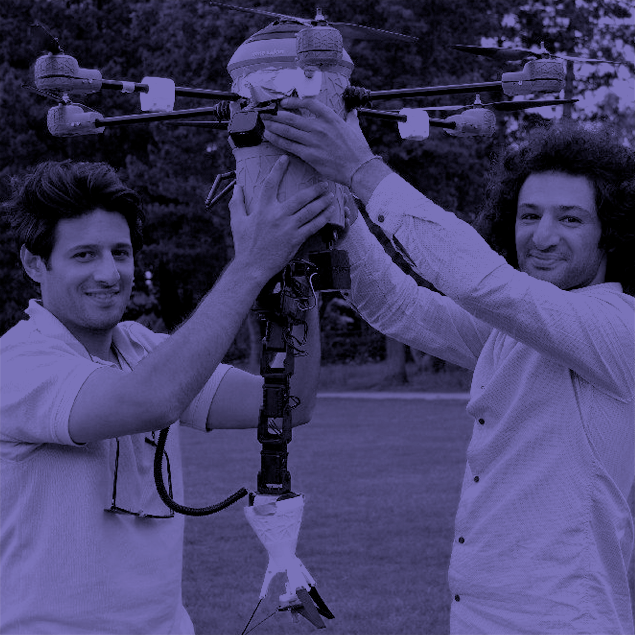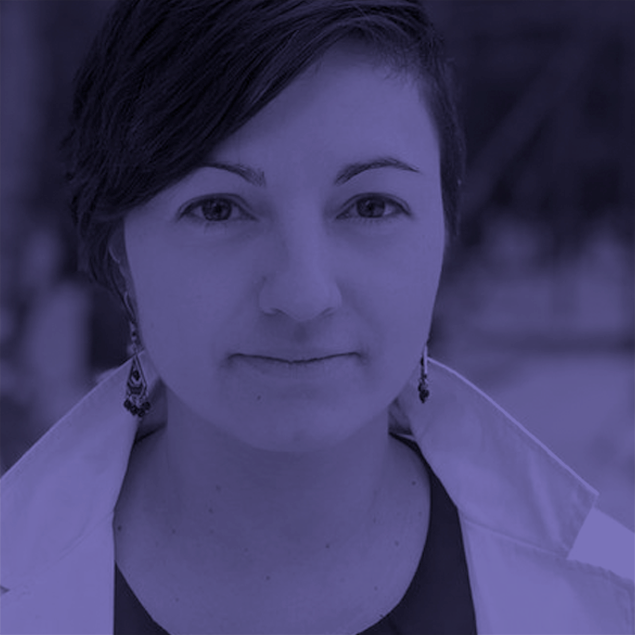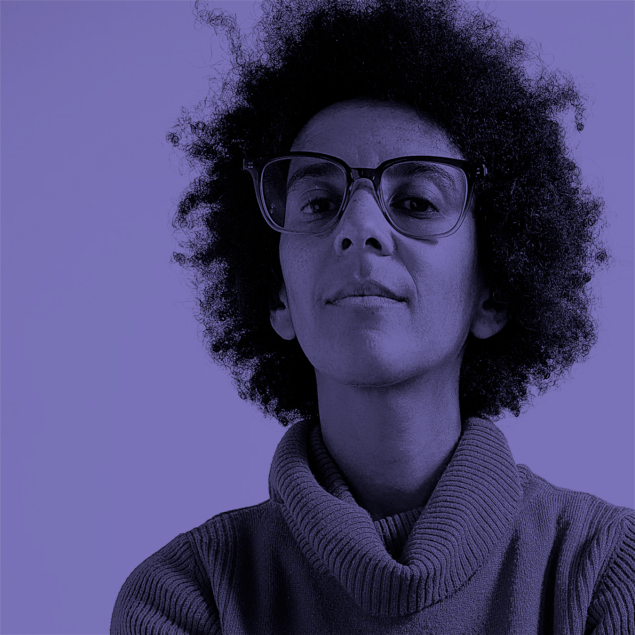
Ellen McGirt|The Design Observer Twenty
October 10, 2023
Dr. Dima Gazda
Bringing elegant design, inclusion, and responsible AI to the field of prosthetics.
The Design Observer Twenty | Sponsored by IDEO
The Design Observer Twenty is our curated selection of twenty remarkable people, projects, and big ideas solving an urgent social need.
“This is about what the future of humanity will look like,” says Dr. Dima Gazda, the co-founder and CEO of Esper Bionics, who created the company’s award-winning prosthetic hand. Augmented, yes, but also human.
The Esper Hand is a slim, FDA-registered device that uses machine learning to become familiar with the wearer’s movements over time, which helps the hand behave in more valuable and natural ways. It’s lighter, smaller, and three times faster than other prostheses on the market. It’s also modular, giving the wearer more control over its fit and function.
Its unique, minimalist beauty is by design.
“We live in contact with other people and that is just as important as functionality,” Gazda says. “Most companies don’t get that yet. They are too focused on the engineering.” Create a fleet of Terminator-like limbs, and you’ll delight engineers and moviemakers. But create an elegant solution that can accommodate real people — including smaller and female bodies — and human augmentation gets a higher calling, he says. “The biggest help after injury is to stay social.” Gazda and the team have learned from years of research with amputees and people with limb differences that many want to do simple things, like cook a meal or raise a glass at their child’s wedding, without drawing attention to themselves. “This will help you get back to your life.”
Esper Bionics has seen a meteoric rise in a narrow field. The company began four years ago with a team of five; they now have a team of 31 drawn from some of the biggest companies in STEM. In addition to tooling up their manufacturing capacity, they spend a lot of time thinking about how future versions of AI-enabled wearable devices can help people monitor their physical bodies. “This is the market we plan to disrupt,” Gazda says. But the Ukrainian-born doctor and engineer — the company has offices in Brooklyn, Berlin, and Kiev — also spends a lot of time with soldiers in the U.S. and Ukraine. Sometimes, these soldiers are returning to the front line after being fitted for their hands. “We don’t recommend this, but we can’t control it,” Gazda says. “They just come back and tell us their stories.”
As the company has grown, a “diaspora” of human-augmentation engineers is forming, with strong opinions about data collection. Gazda believes AI should not be the domain of one company — like Google or Facebook — but achieved through community ethics and responsible safety standards around data privacy, safety, and medical care.
It’s about avoiding stroke, heart attacks, and illness, and maximizing health.“We care about each other, we care not to get sick,” he says. “Technology can help us have more life in our lifetime.”
Essay by Ellen McGirt.
Observed
View all
Observed
By Ellen McGirt
Related Posts

The Design Observer Twenty
Ellen McGirt|The Design Observer Twenty
Massoud + Mahmud Hassani

The Design Observer Twenty
Ellen McGirt|The Design Observer Twenty
Suzanne Ishaq, PhD

The Design Observer Twenty
Ellen McGirt|The Design Observer Twenty
Games for Change

The Design Observer Twenty
Delaney Rebernik|The Design Observer Twenty
Timnit Gebru
Recent Posts
Minefields and maternity leave: why I fight a system that shuts out women and caregivers Candace Parker & Michael C. Bush on Purpose, Leadership and Meeting the MomentCourtney L. McCluney, PhD|Essays
Rest as reparations: reimagining how we invest in Black women entrepreneurs Food branding without borders: chai, culture, and the politics of packagingRelated Posts

The Design Observer Twenty
Ellen McGirt|The Design Observer Twenty
Massoud + Mahmud Hassani

The Design Observer Twenty
Ellen McGirt|The Design Observer Twenty
Suzanne Ishaq, PhD

The Design Observer Twenty
Ellen McGirt|The Design Observer Twenty
Games for Change

The Design Observer Twenty
Delaney Rebernik|The Design Observer Twenty

 Ellen McGirt is an author, podcaster, speaker, community builder, and award-winning business journalist. She is the editor-in-chief of Design Observer, a media company that has maintained the same clear vision for more than two decades: to expand the definition of design in service of a better world. Ellen established the inclusive leadership beat at Fortune in 2016 with raceAhead, an award-winning newsletter on race, culture, and business. The Fortune, Time, Money, and Fast Company alumna has published over twenty magazine cover stories throughout her twenty-year career, exploring the people and ideas changing business for good. Ask her about fly fishing if you get the chance.
Ellen McGirt is an author, podcaster, speaker, community builder, and award-winning business journalist. She is the editor-in-chief of Design Observer, a media company that has maintained the same clear vision for more than two decades: to expand the definition of design in service of a better world. Ellen established the inclusive leadership beat at Fortune in 2016 with raceAhead, an award-winning newsletter on race, culture, and business. The Fortune, Time, Money, and Fast Company alumna has published over twenty magazine cover stories throughout her twenty-year career, exploring the people and ideas changing business for good. Ask her about fly fishing if you get the chance.